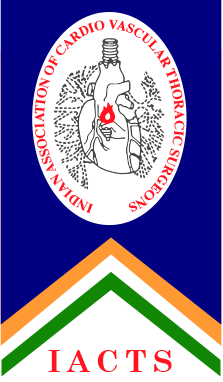

Cardiovascular disease (CVD) is a general term for coronary artery disease (occlusive disease of the arteries supplying the heart). The first line of treatment is medical management. Medical treatment can be used for primary prevention i.e. before any heart attack can take place. The most commonly used medications are cholesterol lowering drugs (statins ), blood thinning tablets ( aspirin, clopidogrel), nitrates and potassium channel blockers. If the patient has Hypertension there is a gamut of medications which includes beta blockers, calcium channel blockers, angiotensin converting enzyme inhibitors, angiotensin 2 receptor blockers and diuretics. In patients with diabetes we consider there is CVD by default and treat them aggressively with statins and blood thinners in addition to anti diabetes treatment. If the patient has a myocardial infarction (heart attack), we have options of giving blood thinning injections (thrombolytics) like streptokinase, tenecteplase and tirofiban.
These injections dissolve clots in the heart arteries and can give a clearer picture before performing an angiogram to open the blocks if any. If the patient having a heart attack reaches early to the hospital ( within the golden hours, this can be 2- 4 hours after the onset of heart attack) and receives treatment to open the occluded arteries, the muscle damage can be minimised. Time is muscle!
Once the patient is stabilised, a coronary angiogram is performed to detect blocks in the arteries. If there are infarct related arteries which can be opened then primary angioplasty (placement of drug coated stent) can be performed within hours of admission. If the patient is in hemodynamic compromise, then opening the culprit vessel is the best option. For chronic stable patients, the decision for angioplasty or bypass surgery is taken by a heart team approach wherein the cardiologist ( heart physician) and heart surgeon decide the best option according to the number of blocks and heart function and the ongoing symptoms of the patient. Bypass surgery option is usually recommended for patients who have multiple blocks, patients with diabetes, left main artery blockage and patients with poor heart function. The long term benefits of angioplasty and bypass surgery can be enjoyed if the patient comes for regular follow up, has a healthy lifestyle and receives the optimal guideline directed medical treatment.
Medical management for CVD
Commonly used medications - cholesterol lowering drugs ( statins ), blood thinning tablets ( aspirin, clopidogrel), nitrates and potassium channel blockers
If hypertensive - beta blockers, calcium channel blockers, angiotensin converting enzyme inhibitors, angiotensin 2 receptor blockers and diuretics
For diabetics - statins and blood thinners in addition to anti diabetes treatment